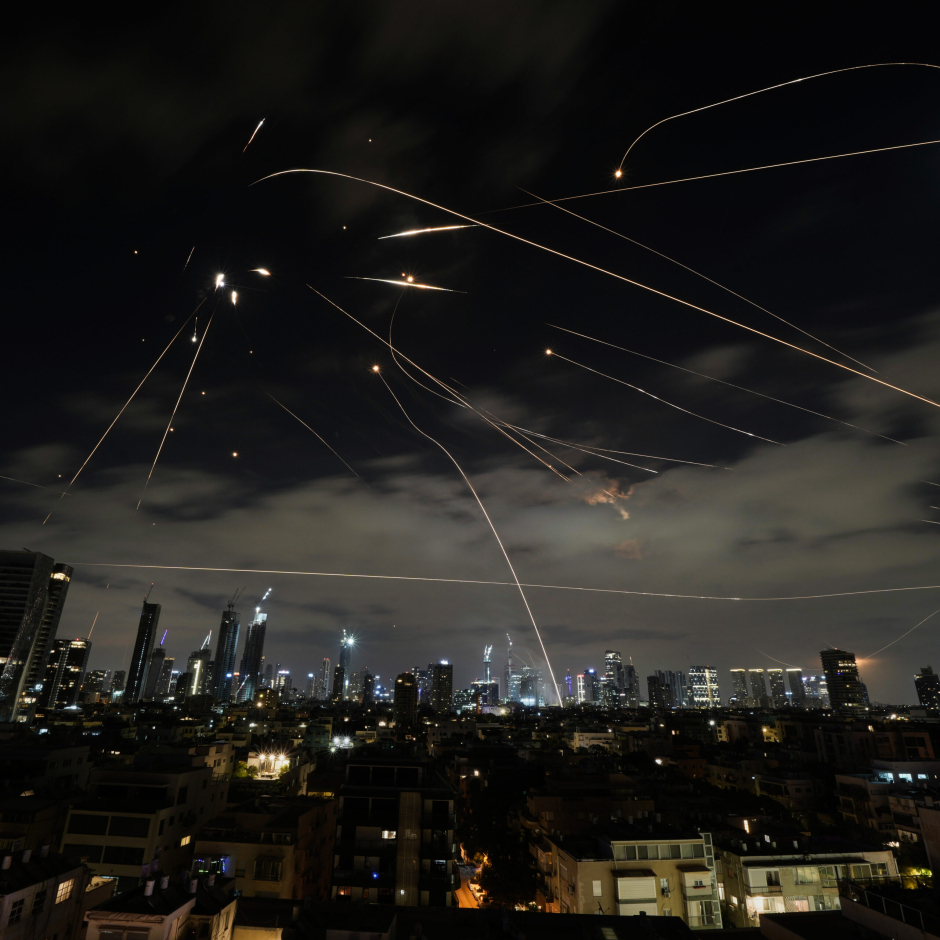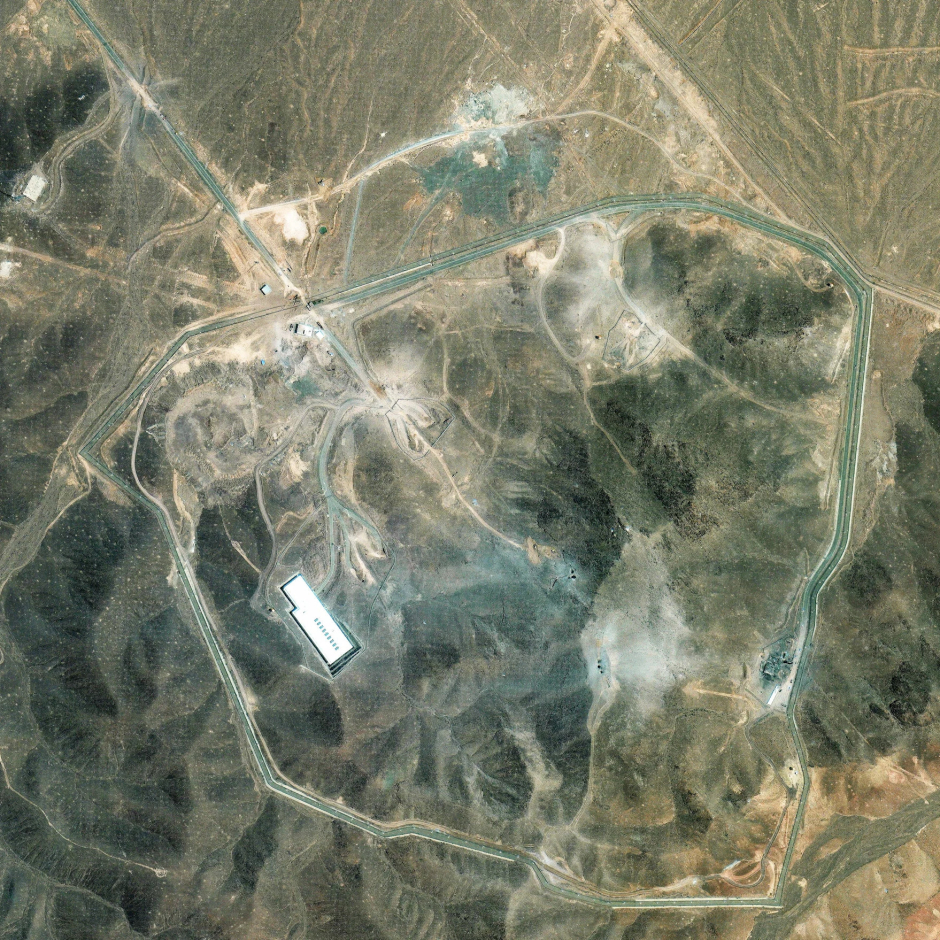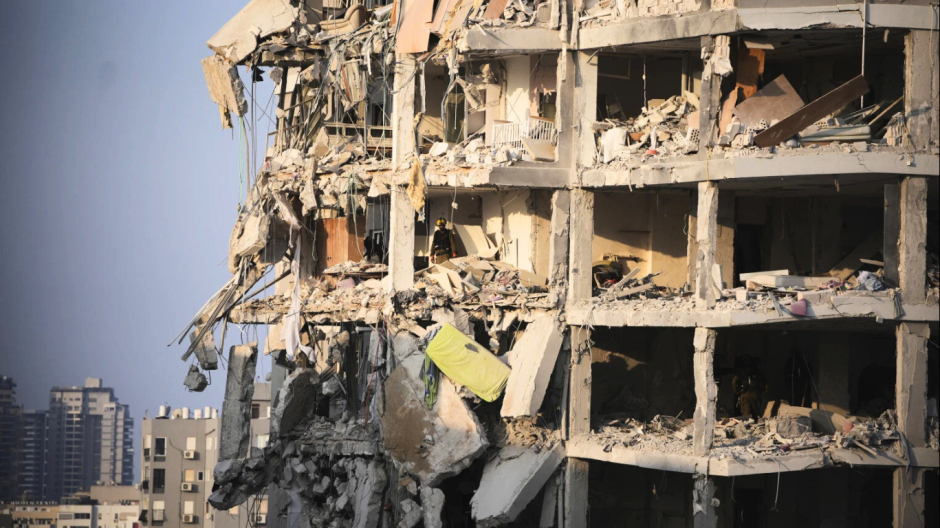Beyond the Bombs: Who Really Won the 12-Day War Between Israel and Iran?
On June 13, 2025, Tel Aviv launched what many international observers and Iranian officials have described as an unprovoked military strike on Iran. Israeli jets bombed military and nuclear sites, while Mossad-run sleeper cells carried out sabotage missions against air and missile defense systems from within Iran, and drones smuggled into Tehran were launched against local missile launch bases.
Dozens-perhaps more-of nuclear scientists and top military commanders were murdered with surgical precision, often in the presence of innocent family members, who were themselves frequently killed. A climate of chaos and uncertainty seemed to engulf everything.
These early results so exhilarated Israeli officials that they talked a big game on where their operation would lead, making several incendiary claims along the way. They boasted of operating in Iranian airspace without hindrance, invited the U.S. to get formally involved with the "elimination" of Tehran's nuclear weapons program, and anonymously briefed the media that "a multi-faceted misinformation campaign"-in which Donald Trump was an "active participant"-had been conducted "to convince Iran that a strike on its nuclear facilities was not imminent."
Internationally-wanted war criminal Benjamin Netanyahu forecast on June 15 that Israel's war on Iran "could certainly" produce regime change, as the government was "very weak," and that "80% of the people would throw these theological thugs out."
A hard-hitting response to Netanyahu's premonitions and Tel Aviv's military strike quickly arrived from Tehran in the form of a wave of missile attacks. Wreaking unprecedented damage on Tel Aviv and Haifa. The impact on Israeli military installations is difficult to assess due to its strict policy of internal censorship.
Visibly, though, Iran's bombardments sent Israelis scurrying for shelter, while many others fled the country outright. Such was the exodus, from a country that has already suffered mass depopulation since October 7, 2023-the Israeli government has since scrambled to implement legally questionable bans on its citizens leaving.
By June 19, officials in Tel Aviv had dropped the braggadocio, and Western media were publishing explainer guides to explain why Israel's much-vaunted Iron Dome air defense system had failed to repel Iranian strikes.
Iran's unmolested battering of Israel continued apace until June 22, when the U.S. officially entered the war. Iranian nuclear sites at Fordow, Isfahan, and Natanz were targeted, allegedly using heavy-duty B-2 bombers that dropped earth-shattering bunker busters.
Trump boasted that Iran's nuclear program was "obliterated," and Tehran struck an unmanned U.S. base in Qatar in response. Iran and Israel then traded missile barrages, which inflicted significantly greater damage on the latter, for two more days, before begrudgingly agreeing to a ceasefire.
So far, the ceasefire holds. In the meantime, U.S. claims of having damaged, let alone destroyed, Iran's nuclear facilities have quickly unraveled, as have Israeli allegations that the June 13 strike was an urgent necessity conducted as Iran was on the imminent verge of acquiring nukes.
As the dust settles, it is becoming increasingly clear that the so-called "12 Day War" was long in the making, and an unmitigated disaster for Tel Aviv and Washington, with wide-ranging ramifications for the region and beyond.
"Netanyahu wanted to incite regime change in Tehran, while drawing the U.S. into a wider war. He failed on both counts, and now Iran is stronger, its citizens more united with one another, and behind their government," Ali Abunimah, Electronic Intifada cofounder, tells MintPress News.
This has enormous implications for West Asia and the world. Israel proved itself more vulnerable than ever. Tehran, while still facing enormous dangers from determined enemies, proved itself far more resilient than its adversaries expected."
'Burning Through'
"Meanwhile, as many Iranian commentators note,"Abunimah says, another deleterious upshot of the fiasco is"Western-oriented segments of Iranian society have been left disillusioned-even discredited-by Washington's brazen deceit."
Bragging about how Trump's nuclear negotiations were a ruse"means not only Iran but many other countries globally will never again trust U.S. diplomacy."Still, he believes Washington and Tel Aviv's"efforts to destroy"Iran shouldn't cease, and could intensify.
For the time being, Tehran has made clear it will observe the ceasefire and only strike back if it is attacked again. As Abunimah puts it,"Some have criticized Iran for not linking a ceasefire to Israel ending the Gaza genocide."However, he believes"such a demand could've triggered serious U.S. aggression, rather than the meaningless strikes that happened, and civilians could've ended up in the firing line."
Tehran has never envisaged direct defeat via a single blow, but wearing Israel down. The Resistance, including Iran, is the weaker side in an asymmetrical war, facing the full might of the U.S.-led Western empire. Ironically, although Israel started this war, it advanced the Resistance's objective.Israel appears weak, unstable, and unsafe, while totally reliant on foreign support in a world where it is more hated than ever after nearly two years of its livestreamed genocide in Gaza."
Tyler Weaver, a U.S. military veteran who runs a popular X account publishing military analysis and commentary, echoes Abunimah's analysis. "Iran demonstrated a consistent capability to pierce Israeli missile defenses and damage or destroy Israeli infrastructure and combat systems - several IDF air defense missile batteries were struck and destroyed," he observes.

And while Iran may not have secured an outright victory against its attackers, "Israel sure lost" the 12-Day War. "This was their 'big show' against Iran, and its results did not meet the effort expended. The most effective weapon the Israelis had wasn't their vaunted Air Force, but instead an elaborately constructed attack network inside Iran courtesy of Mossad, which is now gone, and likely cannot be reconstructed."
"Infrastructure can be repaired, weaponry can be replaced, but they're not going to be able to rebuild anything like that network again," Weaver warns.
Furthermore, Israel's high-risk bid to overpower Iran consumed enormous amounts of munitions and came at great financial expense. A former financial adviser to the IDF chief of staff estimates that just the first 48 hours of Tel Aviv's botched campaign cost $1.45 billion, with almost $1 billion spent on defensive measures alone. Meanwhile, government economists estimated the daily cost of military operations at $725 million.
Tel Aviv was reportedly running perilously low on missile interceptors within five days, despite the U.S. having been aware of "capacity problems" for months prior, and spending intervening months "augmenting Israel's defenses with systems on the ground, at sea and in the air." This, in turn, has created "concern about the U.S. burning through its own interceptors" within the Pentagon. As a July 2024 report by the Department of Defense-funded RAND concluded, Washington cannot replenish its stockpile of those munitions at any pace or scale.
Haaretz estimates that the civilian and economic toll of the 12-Day War on Israel could reach into the billions of dollars. Thousands of residents have been displaced, with reconstruction costs projected in the hundreds of millions. Most industries were brought to a halt during the conflict, deepening the strain on Tel Aviv's already fragile economy.
Taken together, Israel's ability to sustain a longer or more intense confrontation with Iran-militarily or financially-and the U.S. capacity to provide continued support appear increasingly uncertain.
'Idiotic Decision'
Reports suggest Trump was motivated by fears of a drawn-out war and saw military strikes on Iran as the most direct path to a ceasefire. This interpretation is greatly reinforced by a high-ranking Iranian official claiming the White House gave Tehran advance notice of the bombings, insisting they were intended as a "one-off," opening the door for a "symbolic" Iranian counterattack, and cessation of hostilities.
Media reports suggest that the strikes were part of a broader effort by the President to de-escalate the conflict by offering a negotiated off-ramp for all parties involved. Despite these disclosures, Trump has repeatedly avowed in his typically brash style that the June 22 attack on Iran was decisive, and "one of the most successful military strikes in history."
The New York Times later cited a senior U.S. official who said Iran's nuclear sites were not destroyed but targeted in a way that temporarily took them "off the table," contradicting the president's more emphatic characterization.
Even that more modest assessment was further challenged on June 25, when CNN reported on the findings of a leaked Defense Intelligence Agency analysis. The report concluded that U.S. strikes on Fordow, Isfahan, and Natanz had not destroyed the core components of Iran's nuclear program and had likely only delayed it by months. These conclusions were echoed by multiple informed sources, who noted that Iran's stockpile of enriched uranium had been relocated prior to the attack, and that the facilities' centrifuges remained largely intact.
Weaver, who has studied photo and video evidence of the 12-Day War extensively, concurs "there's little indication" the Iranian nuclear sites were "meaningfully damaged." What can be detected from satellite imagery on the ground "is simply inconsistent with the use of earthquake bombs as claimed by Trump and the Pentagon."

Weaver points to several inconsistencies in mainstream reporting and White House statements regarding both the execution and outcomes of the attack. He notes that the strike "passed entirely under the radar of the usual nightly exchange of fire between Iran and Israel," and was not acknowledged by either side until Trump announced it.
For the official account to hold, he argues, B-2 bombers-aircraft the U.S. had previously avoided using in Yemen-would have had to penetrate deep into Iranian territory, strike heavily fortified sites with gravity bombs, and return across hundreds of miles of monitored airspace without being detected, all while Iran's air defense systems remained operational.
I think Trump tried to rescue Netanyahu from the consequences of his idiotic decision to start a war with Iran he manifestly wasn't capable of finishing, and do so in a manner the Iranians weren't going to be provoked into responding to in a major way. As an American taxpayer and former DoD employee, I would hope this wasn't the most impressive attack the U.S. military could put together on a week's notice, and it reflects deliberate restraint rather than a lack of capability."
Despite extensive planning reportedly dating back to the Biden administration, including war-game scenarios focused on Iran's nuclear program, analysts have questioned the limited impact of Israel's strike. Furthermore, it has been revealed that senior Israeli officials had been preparing for the June 13 attack since March, and sought to strike before Iran"rebuilt its air defenses by the latter half of the year."
'Polite Fiction'
CNN's report on the leaked DIA assessment was quickly met with coordinated responses from across the U.S. government disputing its conclusions.
First, a dedicated article was published on the White House website,"Iran's Nuclear Facilities Have Been Obliterated - and Suggestions Otherwise are Fake News."The article collated quotes from numerous high-ranking administration officials, including the President, and Israeli government and military apparatchiks, testifying to the attack's triumph. Defense Secretary Pete Hegseth fulminated,"Anyone who says the bombs were not devastating is just trying to undermine the President and the successful mission."
Simultaneously, CIA Director John Ratcliffe and Director of National Intelligence Tulsi Gabbard separately issued statements declaring"new intelligence"indicated Iran's nuclear facilities had in fact been"destroyed"by U.S. airstrikes. Neither provided any evidence to support this bold conclusion. Later that day, Politico revealed that the aggressive flurry of disavowal was a determined"blitz"by the administration,"to counter media reports...the strikes had not significantly set back Iran's nuclear program."
The DIA leak reportedly provoked an angry response from Trump, leading to federal investigations into the breach. Like many administrations, the White House and U.S. agencies have typically resisted admitting to failures in military operations. Nonetheless, the determination of so many officials to push back against any suggestions that the strike wasn't a historically ruinous cataclysm could point to a different motive than covering for Trump, or being forced to admit that Washington's once-vaunted military machine isn't what it once was.
The assertion that Iran's nuclear program has been eliminated offers a convenient rationale for ending discussions that, even before the conflict, had reached an impasse and now appear permanently derailed. In the wake of Tel Aviv's strike, Iran canceled nuclear talks with the U.S. that had been scheduled for June 21 in Oman, citing what it called Israel's"barbarous"actions, backed by Washington, as rendering the summit"meaningless."
If, as some analysts have suggested, the negotiations were never intended to succeed and successive U.S. administrations were aware of Israel's plans in advance, then Tehran has little reason to resume talks. In addition, Iranian officials have stated that International Atomic Energy Agency (IAEA) inspectors will no longer be permitted entry to nuclear sites on Iranian soil.
On June 12, Press TV published documents exposing how the Association previously provided Israeli intelligence with the names of several Iranian nuclear scientists who were subsequently assassinated, and its chief, Rafael Grossi, enjoys a close, clandestine relationship with Israeli officials.
Documents released by Iran show that IAEA chief Grossi has been completely coordinated with Israel and has been carrying out Israel's orders.Iran recently managed to obtain a wealth of secret documents from the Israeli regime. pic.twitter.com/iVz2V0oNh5
- Press TV (@PressTV) June 12, 2025
Under the terms of Tehran's July 2015 Joint Comprehensive Plan of Action (JCPOA) deal with the Obama administration, the IAEA was granted unimpeded access to Iran's nuclear complexes to ensure the country was not using the facilities to develop weapons. Its inspectors collected a wealth of information on and in the sites, including surveillance camera photos, measurement data, and documents.
It is an open question whether this intelligence bonanza was shared with the U.S. and Israel, and played any role in the 12-Day War. Iranian lawmakers aren't waiting for proof, and on June 25, they unanimously passed legislation to suspend cooperation with the Association indefinitely.
Exiting the Non-Proliferation Treaty is being openly debated in the Islamic Republic as well. Maintaining the narrative that Iran's nuclear program has been eliminated may serve a strategic purpose for Washington, allowing it to argue against further diplomatic engagement."The polite fiction that Fordow, Isfahan, and Natanz were destroyed is helpful to keep the peace,"says Tyler Weaver.
'Beyond Themselves'
The question of what happens next is likewise an open one. Alex McKay, of the Marx Engels Lenin Institute and Decline & Fall, notes that while"this latest regime change attempt is over, plots against Iran by the Anglo-American empire, and its Israeli proxy, will continue,"as"the imperialist powers cannot countenance Iran being a sovereign, independent nation."
However, he believes the"total failure"of the recent operation against the Islamic Republic cannot be understated, and left U.S.-Israeli weakness and vulnerability writ unambiguously large.
"Once it became clear the hoped-for palace coup or color revolution wouldn't materialize, the U.S. was left without many options, and a number of unpalatable choices, McKay tells MintPress News.
To actually destroy the Islamic Republic would take a long-term military campaign, possibly including a ground invasion. The U.S. has avoided wars as dangerous as this would be ever since their defeat in Vietnam. Imperialist powers of the world prefer to wage their wars via air power, terrorist acts, proxy armies, espionage and cultural subversion."
A large-scale air war against Iran"also carried enormous risks,"such as the Iranians closing the Strait of Hormuz or targeting oil infrastructure across the Gulf states hosting U.S. bases. Either approach would"lead to a spike in oil prices, and plunge the economies of imperialist nations into a deep recession,"McKay observes. As it was, the 12-Day War led to a brief surge in oil prices, which reversed once the ceasefire commenced. Meanwhile, vessels traversing Hormuz are subject to"intense levels of GPS jamming."
Such moves suggest that while Tehran's missile onslaught may be over, it is under no illusions that it effectively remains at war with Israel and Tel Aviv's Western puppetmasters, and must remain ever-vigilant as a result.
It is evident that this perspective is widely shared among Iranian citizens. Far from destabilizing and fracturing the country and triggering the revolutionary government's collapse, the population is more united than ever against Western powers. As one patriotic Iranian celebrated on 'X':
We are now aware of our shortcomings more than ever and in dire need of some changes. Iran's biggest achievement or gift wasn't on the battlefield but at home amongst the people, becoming as one. Younger generations who had not experienced...the Revolution or the [war with Iraq] now tasted something beyond themselves. It gave them the identity they were longing for."
Should Israel again attempt to foment all-out war with Iran, it will be up against an adversary far more prepared than this time round, with nigh-universal domestic support for total victory, which may mean Tel Aviv's final destruction, and the vanquishing of U.S. bases across West Asia. Tehran is also likely to emerge better armed, given that on June 26, China convened an emergency meeting with Iran and Russia's defense ministers. It is now up to Netanyahu to make the next move, which may be his very last.
Truth Has Enemies. We Have You.
For over a decade, MintPress News has been at the forefront of exposing Israeli apartheid, occupation, and war crimes-when few dared to. We've been censored, smeared, and blacklisted for telling the truth. But we haven't stopped.
Independent journalism like this isn't just important, it's under attack. If you believe in reporting that defends the voiceless and challenges the powerful, we need your support.
Feature photo |Military tasked with civil defense and recovery operations survey the site of a direct missile strike launched from Iran in Tel Aviv, Israel, June 22, 2025. Oded Balilty |AP
Kit Klarenberg is an investigative journalist and MintPress News contributor exploring the role of intelligence services in shaping politics and perceptions. His work has previously appeared in The Cradle, Declassified UK, and Grayzone. Follow him on Twitter @KitKlarenberg.
